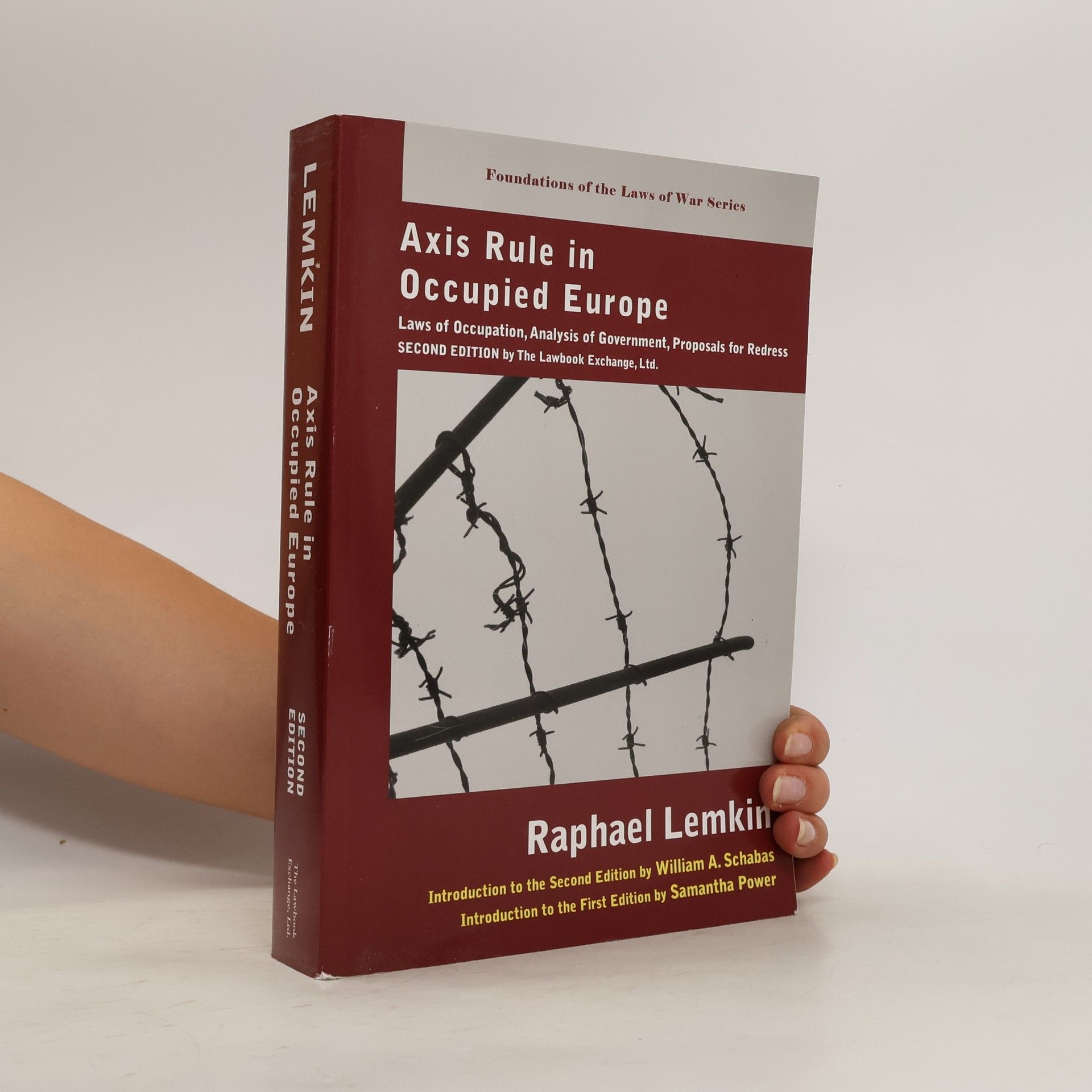"In this pathbreaking study Polish emigre Raphael Lemkin [1900-1959] coined the term "genocide" and defined it is a subject of international law. While the term has come to mean the extermination of a people, Lemkin used it to describe all programs that sought to increase "Aryan" birthrate while working to exterminate the social, cultural and economic independence of non-Germanic peoples.
Raphael Lemkin Boeken
Raphaël Lemkin, een advocaat van Pools-Joodse afkomst, is vooral bekend geworden door het bedenken van het woord genocide en het initiëren van de Conventie inzake de voorkoming en bestraffing van de misdaad van genocide. Lemkin bedacht het woord genocide in 1943 of 1944 uit het Griekse 'genos' (familie, stam of ras) en de Latijnse uitgang '-cida' (doden). Tussen 1953 en 1957 werkte Lemkin rechtstreeks samen met vertegenwoordigers van verschillende regeringen, zoals Egypte, om genocide te verbieden in de binnenlandse strafwetten van deze landen. Lemkin werkte ook samen met een team van advocaten van Arabische delegaties bij de Verenigde Naties om een zaak op te bouwen voor de vervolging van Franse ambtenaren wegens genocide in Algerije.



The book presents a groundbreaking analysis by Raphael Lemkin, who introduced and defined the concept of genocide within the context of international law. It explores how Lemkin's definition encompassed not only extermination but also the systematic efforts to undermine the social and cultural independence of targeted groups. This work laid the foundation for prosecuting war crimes, particularly against the Nazis, and established a framework for addressing crimes against humanity. The second edition includes introductions by William A. Schabas and Samantha Power, enhancing its historical significance.
Die Suche nach einem passenden Begriff für die Gräueltaten der Nazis führte den Juristen und Humanisten Raphael Lemkin zur Prägung des Begriffs "Genozid" im Jahr 1943. Durch seine umfassenden Studien in Philosophie, Philologie und Recht sowie sein persönliches Engagement spielte Lemkin eine entscheidende Rolle bei der Entstehung der Genozidkonvention der Vereinten Nationen von 1948. Sein Leben und Werk beleuchten die Verbindung zwischen Sprache, Recht und dem Schutz der Menschheit vor unvorstellbarem Leid.